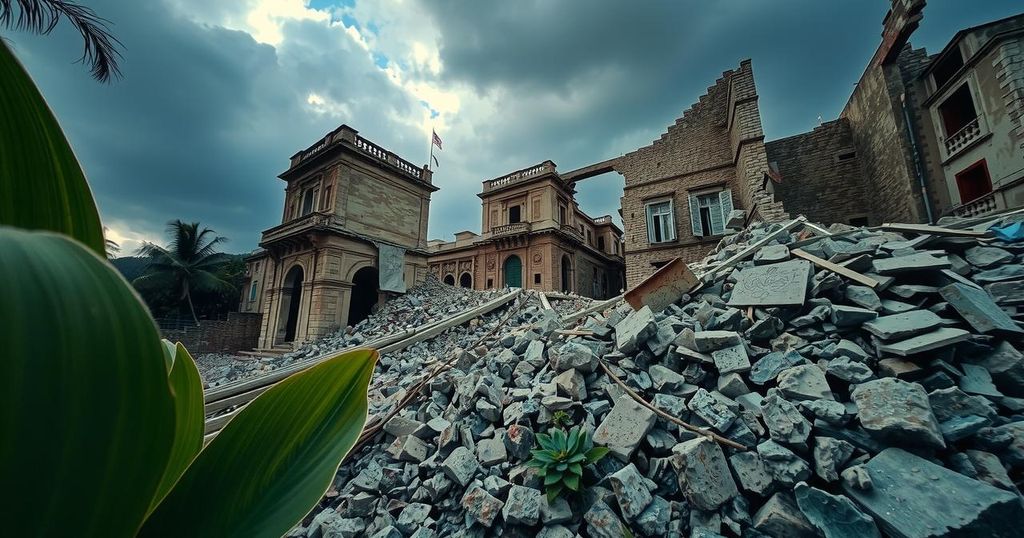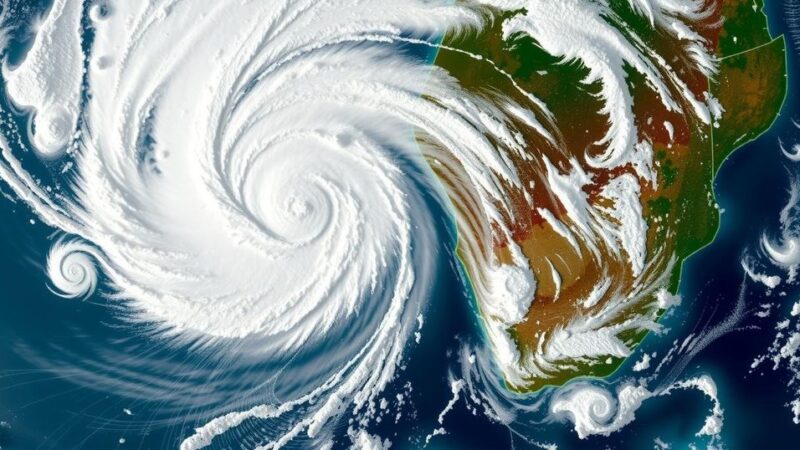Eastern Cuba was shaken by a 6.8 magnitude earthquake, preceded by hurricanes and ongoing blackouts. The quake’s epicenter was near Bartolomé Masó, and it was felt in major cities like Santiago de Cuba. Although there are no immediate reports of damage, local residents expressed significant anxiety. This earthquake exacerbates the struggles Cuba faces during a difficult period marked by natural disasters and energy crises.
On Sunday, eastern Cuba experienced a significant seismic event, registering a magnitude of 6.8. This earthquake struck after a tumultuous period characterized by devastating hurricanes and widespread blackouts affecting the nation. The United States Geological Survey identified the quake’s epicenter approximately 25 miles south of Bartolomé Masó. Although tremors reached major urban centers, including Santiago de Cuba, there have been no immediate reports of substantial damage or injuries among the populace. The residents of Santiago, particularly affected by the quake, displayed signs of distress. A 76-year-old local, Yolanda Tabío, recounted how the earthquake instilled a sense of panic, prompting many to vacate their homes and congregate in the streets. She reported experiencing at least two aftershocks and noted that, among her acquaintances, no property damage had been reported. “You had to see how everything was moving, the walls, everything,” she stated during her conversation with The Associated Press. This seismic event compounds Cuba’s current challenges. Recently, on the preceding Wednesday, Hurricane Rafael, a Category 3 hurricane, wreaked havoc across western regions, creating extensive power outages and damaging hundreds of homes. The aftermath of the storm left many citizens without electricity for several days, only exacerbating existing difficulties from earlier blackouts triggered by an ongoing energy crisis. In October, Cuba had already confronted severe blackouts followed by another hurricane that culminated in six fatalities, contributing to public unrest and small-scale protests throughout the nation.
Cuba has faced a series of natural disasters and systemic crises recently, leading to heightened vulnerability among its citizens. The island encountered several hurricanes within a short time frame, each compounding existing issues related to its energy infrastructure. Widespread blackouts—often criticized by the populace—have led to social unrest and despair, particularly as the economy struggles to meet basic needs. This context sets the stage for understanding the immediate consequences and public reactions following the recent earthquake.
In summary, the 6.8 magnitude earthquake that struck eastern Cuba serves as a concerning reminder of the region’s vulnerability to natural disasters. Coupled with the recent hurricanes and ongoing energy crises, the situation remains precarious for many Cubans. While there are currently no major reports of damage or casualties, the residents’ anxiety reflects a deeper struggle faced by a nation grappling with economic hardships and systemic challenges.
Original Source: www.independent.co.uk






